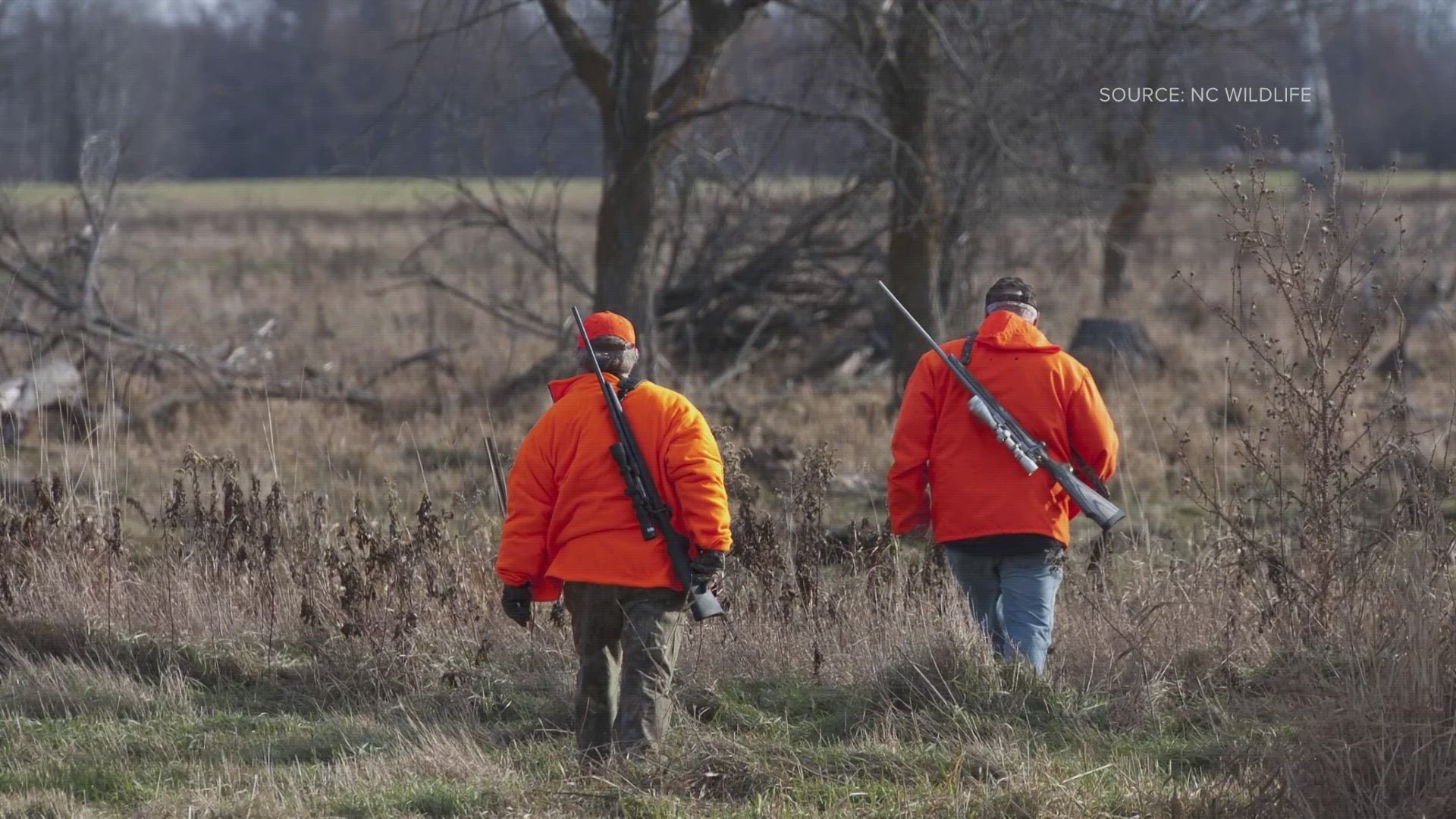NORTH CAROLINA, USA — The North Carolina Wildlife Resources Commission (NCWRC) Law Enforcement Division is experiencing an increase in firearm-related hunting incidents this year involving serious injury and fatalities. NCWRC reminds hunters to practice firearm safety when hunting or using firearms.
Wildlife Law Enforcement reports there have been five fatalities involving hunting with a firearm this hunting season, more than the past three seasons combined, which had one fatality between 2020-2022. Fourteen hunting-related incidents have occurred thus far in 2023, with 11 of them involving a firearm.
“The current data for this season indicates that 50% of hunting incidents involving a firearm resulted in a fatality,” said Captain Branden Jones of NCWRC’s Law Enforcement Division. "A lot of the incidents are just unfortunate, a lot of them are true accidents."
North Carolina ranks seventh in the nation for licensed hunters at 603,995, according to the International Hunter Education Association (IHEA). Many firearm injuries occur when hunters fail to properly identify their target and mistake another hunter for game, or carelessly handle a firearm resulting in self-inflicted injuries.
Hunting incidents can be reduced through safe firearm handling. NCWRC offers the following important rules of firearm safety:
1. Positively identify target before pulling the trigger.
2. Always point a firearm in a safe direction.
3. Treat every firearm as if it were loaded and never assume it’s unloaded.
4. Use binoculars, rather than a rifle scope, to identify the target.
5. Keep finger out of the trigger guard and off the trigger until ready to shoot.
6. Be sure of the target and that there are no houses, vehicles, powerlines, livestock or people in front of or behind it.
7. Avoid the use of alcohol and drugs as they may affect judgement when hunting.
8. Comply with blaze orange laws as required.
In regards to blaze orange laws, Captain Jones said, "the minimum requirement is to be visible from all sides. So, it could be a hat, it could be a jacket, but even if you're on your own land, make sure you're wearing it, make sure you're wearing it in the stand. You never know whose trespassing or who may be there, you just never know."
He also mentioned the harsh reality of some of these hunting incidents, and that is, hurting a loved one, "you know, usually when we go hunting, we don't hunt with strangers, we hunt with family, we hunt with friends. When a lot of these incidents occur, you're with family members, you're with friends and that's the last thing we want to do, is harm somebody that we love and care about."
In efforts to reduce hunting-related incidents, NCWRC offers basic hunter education certification courses, both in-person and online.
For more hunting information visit these NCWRC’s webpages for the 2023-24 Inland Fishing, Hunting & Trapping Regulations Digest, hunter education, hunting webinars for new hunters, and Chronic Wasting Disease.

